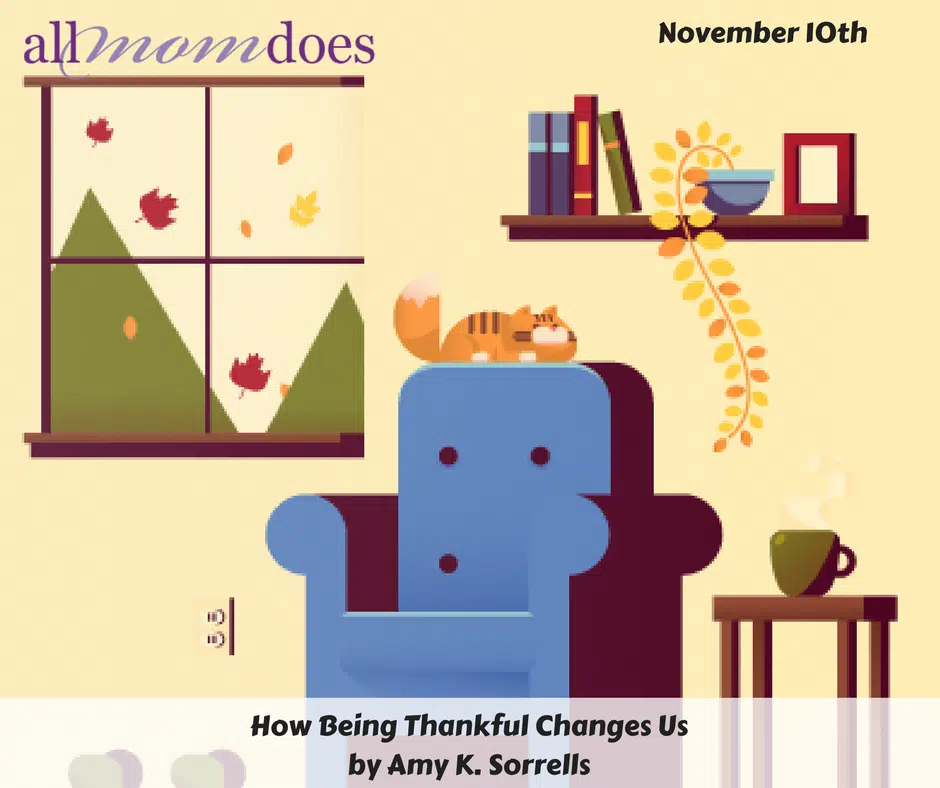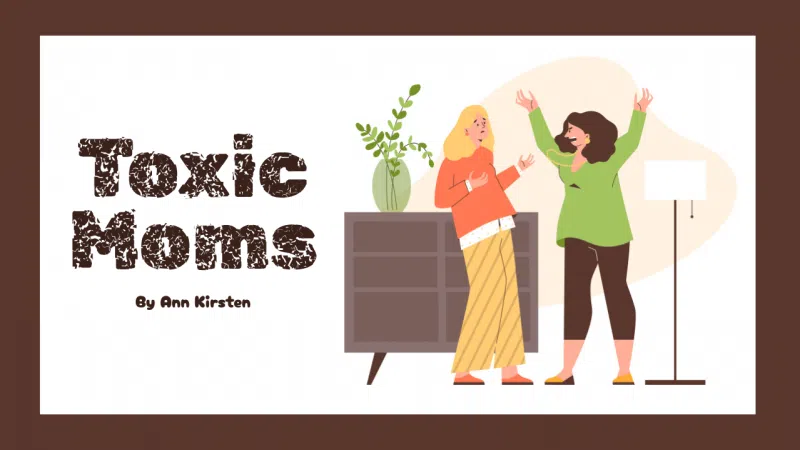Many years ago, when my three sons were all in diapers, we found ourselves in the midst of significant financial struggles. I couldn’t understand why we worked so hard and could never seem to make ends meet. More than that, I was weary from the endless tasks associated with caring for three young children. And on top of it all, I couldn’t get rid of my baby weight.
What I remember most about that time, however, is how I learned thankfulness is more than a feeling. I realized I had a choice: I could lament and fret over our circumstances, or I could look for God in the midst of everything that was making me feel so overwhelmed.
At first, choosing gratitude was hard. I didn’t want to be thankful, I just wanted to feel as blessed as the other moms around me looked. I wanted to keep wanting.
I started small.
Thank you, Lord, for this pile of laundry. All the onesies and pairs of tiny socks and men’s undershirts mean I have healthy children and a husband who loves me.
And I soon found prayers like this led to other prayers like it.
Thank you, Lord, for the depression I battle. It helps me rely on You.
Thank you, Lord, for my job as a nurse. The work of my hands is an opportunity to minister to the sick.
Thank you, Lord, for the home we do have, for the trees, once saplings my sons and I planted, that are now tall and provide shade from the hot winter sun.
Currently, my husband and I are in the midst of launching our three sons into college and beyond. The house is too quiet. My thoughts are too loud. Their bedrooms are too empty, and my heart feels that way, too. I am often tempted to spiral into sadness during this empty-nesting phase of life because it feels so unbalanced and I just plain miss my children. But in the midst of this, I find once again that practicing and choosing thankfulness gets me through.
Thank you, Lord, for the years I have had to mother these young men.
Thank you, Lord, that you continue to guide and mold them into the adults you have created them to be.
The Greek, the word for thanks is eucharisteō, and occurs 65 times in New Testament in verses such as 1 Thessalonians 5:18, “…give thanks in all circumstances; for this is the will of God in Christ Jesus for you.” In Hebrew, the word for thanks is yadah, which appears 114 times in the Old Testament in places like when Leah became pregnant (Gen 29:35), in times when the Isrealites were confessing their disobedience to God (Ezr 10:1; 2Ch 6:24; Lev 5:5), and of course all throughout the Psalms.
What’s striking about searching the scriptures for moments when God’s people gave thanks is that they did so whether in the midst of trials and fear (Daniel 6:10), on the heels of great blessing, when plagued with doubt, or unjustly imprisoned (Philippians 4:12). No wonder the Apostle Paul tells us we are to give thanks no matter our circumstances. Giving thanks is a choice, and a choice that restores our hope and our hearts.
Author Lauren Winner, in her book Mudhouse Sabbath, writes about the Jewish practice of reciting a prayer called the Kaddish during seasons of mourning. What’s interesting about the Kaddish is that it is void of lament, but rather full of praise and thanksgiving. Winner writes,
“Even in the pit, even in depresssion and loss and nonsense, still we respond to God with praise. This is not to say that the mourner should not feel what he feels–anger, disbelief, hatred. He can feel those things (and shout them out to God; God can take it). You do not have to feel praise in the intense moments of mourning, but the praise is still true, and insisting upon it over and over, twice a day every day, ensures that eventually you will come to remember the truth of those praises.”
Reciting the truth like Jewish mourners do—choosing thanksgiving whether we feel like it or not—can bring the head and the heart back together in times of uncertainty. Indeed, I have learned—and continue to learn—that thankfulness is a choice, and one that means acknowledging the Lord in plenty and in want. Giving thanks helps each of us look for the good in the midst of trials. It helps us realize what we have instead of what we don’t. It helps us move from wanting to contentment. It helps us move from longing to peace. Most of all, choosing thanks helps us move from despair to joy.
“Sing and make music in your heart to the Lord, always giving thanks to God the Father for everything, in the name of our Lord Jesus Christ” (Ephesians 5:19-20, NIV).
Questions for thought:
- Why do you think Paul tells us to give thanks in all circumstances?
- Have you ever chosen giving thanks when that was the last thing you wanted to do? If so, describe what happened.
- List three new ways you can choose thanksgiving today.
- Try this: Using your calendar or day planner for the next 30 days, list 3-5 things at the end of every day for which you are thankful.
***
About the Author: Amy K. Sorrells is an award-winning author of How Sweet the Sound, Then Sings My Soul, and Lead Me Home, with a fourth releasing in 2018 called Before I Saw You. She lives in central Indiana with her husband and three sons.












